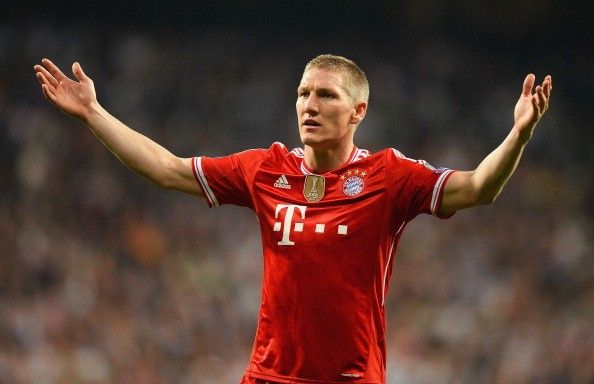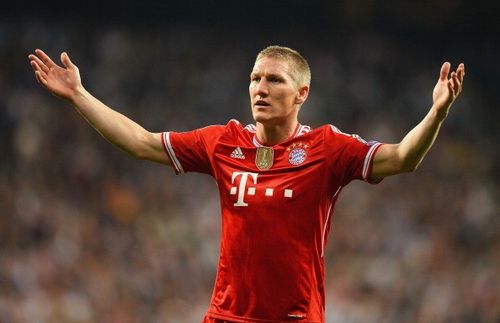
Bastian Schweinsteiger arrives at Manchester United to 'prove a point'

Somewhere in the dark, unplumbed depths of the internet exist several faceless names, soundless voices. These faceless names and soundless voices can be identified by their holier-than-thou morals and snorting derision towards ‘oil clubs’, ‘corrupt UEFA stooges’ and ‘history peddlers’.
The world, however, simply looks on in envy as Manchester United confirm their acquisition of Bayern Munich and Germany midfielder Bastian Schweinsteiger. A monumental signing for Man United, no doubt, but simply a one-off transfer deal? Or indicative of something more?
Bastian Schweinsteiger, for all his pedigree, is essentially a rather atypical Manchester United signing. Over the past ten years or so, the general trend shows that their signings have, regardless of fee, been players from the second tier of clubs ready to make a step up with the potential to excel (Michael Carrick, Chris Smalling, Nemanja Vidic, Patrice Evra) or players who have experienced relative success elsewhere and whom Manchester United signed to significantly bolster their ranks (Shinji Kagawa, Robin van Persie).
Some worked out (Wayne Rooney, Javier Hernandez) while others didn’t (Nani, Anderson) but they did have something in common: They all had something to prove - to fans, to national team coaches, to the manager and to themselves.
Joining a successful team with a high chance of success each year pushed them to better and improve themselves at every step. The hunger for success was evident, and the watchful eye of Alex Ferguson kept them on their toes.
Success changes players
Several years ago, Roger Hunt spoke of how success changes players. After collecting some silverware, that intense desire to win dies down a little. Players still want to win, but maybe they aren’t quite as subconsciously driven anymore.
A similar situation appears to be developing here. Dropping out of the Champions League positions in 2014 led to Man United responding spectacularly in the transfer market that summer: the old guard were shipped out and in came Radamel Falcao and Angel di Maria, two players who are the very antithesis of a ‘typical’ Manchester United signing; players who had already achieved a lot in their careers, and come to Manchester perhaps not quite so desperate to succeed.
Having achieved their goal of qualifying for the Champions League in 2015, Man United seem eager to try out a new look transfer policy – one which gives priority to accomplished, fully developed players who can produce instant results – in their journey back to the summit of the English game.
This is in no small part due to an increased willingness to flex their significant financial muscle – essential to purchasing footballers of this calibre.
And so arrives Bastian Schweinsteiger, a rare active example of Man United acquiring a player who has achieved all there is to achieve and then some. If Hunt’s words hold weight, we can expect Schweinsteiger to demonstrate his sublime skills and obvious talent to a whole new audience, though it is doubtful whether he will be the sole driving force behind Man United’s re-ascendancy. That responsibility will likely be shared.
The old ways aren’t quite gone – after all, Memphis Depay signed up earlier in the summer – but should Manchester United have a positive experience with ‘Schweini’, likely, given the addition of his significant technical and leadership qualities to a midfield that requires an injection of quality, then there is no reason why they would not conduct similar business in the future.